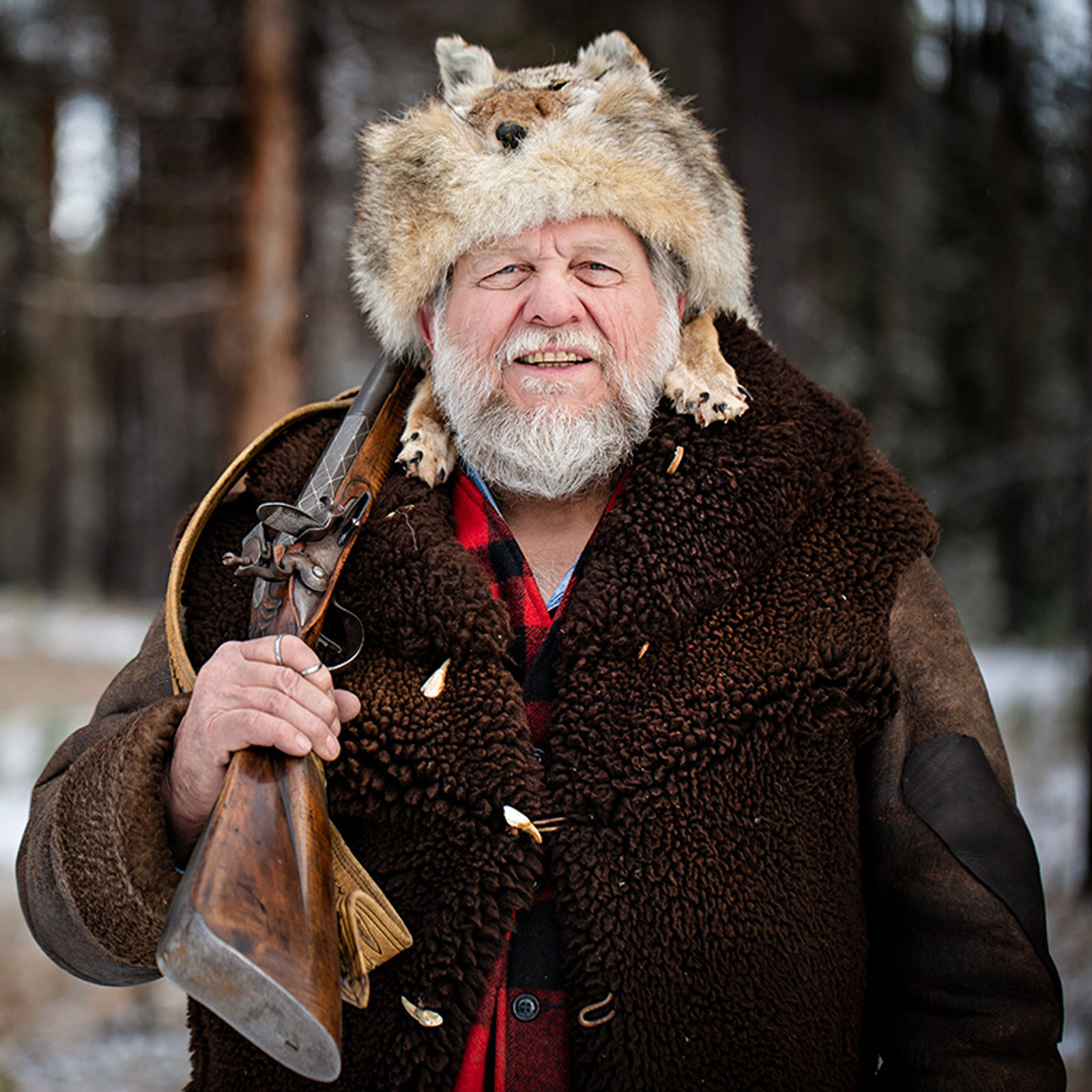
A decade ago, local gunsmith Gene Gordner was at a Safari Club International show in Las Vegas with Kilimanjaro Rifles when a man from a New Zealand hunting outfit approached him with a once-in-a-lifetime opportunity.
“He said, ‘Gene, we’d love to have you come down and hunt sometime with us free of charge,’” Gordner said. “Bring your flintlock and we’ll hunt a New Zealand stag.’”
Trophy fees in New Zealand cost thousands of dollars, and hunting trips range anywhere from $10,000 to $100,000, so Gordner was sure there was a catch. But after much questioning of the suspicious offer, he packed his bags and flew to the South Pacific.
In March 2012, Gordner broke a world record when he shot a New Zealand red stag with a .79 caliber 10 bore Jaeger flintlock rifle that he custom built on 500,000 acres of private land on the northern tip of the country’s south island. Although Gordner didn’t know it at the time, his friend orchestrated the hunt so he could beat the previous world record. The hunter who held it had cheated by hunting a game farm animal that had escaped.
“I think that’s why he dreamed the whole thing up,” Gordner said. “He said, ‘I’m going to have Gene come hunt with a real flintlock and we’re going to kill a big stag and we’re going to take that record.’ I think that’s why he cooked this whole thing up. I just got to be the lucky guy that came along on the trip.”
Gordner’s record has since been beaten, but he’s still flabbergasted by the trip.
“It was the greatest adventure I’ll ever have,” he said.
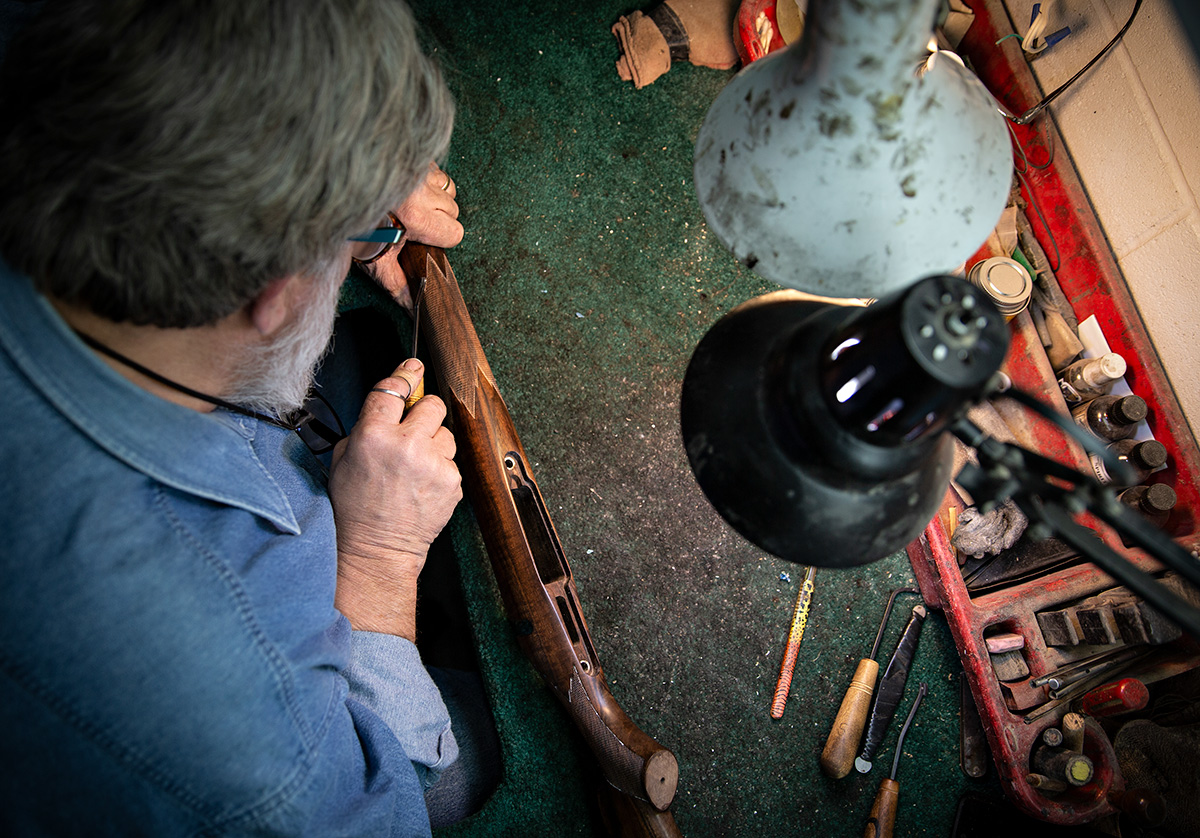
At 65, Gordner’s entire life thus far has been defined by adventure.
Born in Pennsylvania, he enlisted in the U.S. Marines at age 17 thinking he’d stay for the rest of his life. But he was disappointed by the end of four years. His dreams of heroism didn’t pan out how he hoped, and after seeing Jeremiah Johnson at the drive-in theater where he was stationed in Twentynine Palms, California, he developed new dreams of a mountain-man lifestyle.
Following his time in the Marines, he returned home for hunting season, and after spending some time in Vermont, he wanted to head as far northwest as possible.
“In the spring, I decided, “If I’m going to go west and be a mountain man, then I better go,’” Gordner said.
With $400 in his wallet, Gordner headed northwest in 1978, crossing the Canadian border. His plans to find work in Prince George, British Columbia were quickly squashed when immigration officials in Calgary sent him back to the U.S. and told him he couldn’t return until he had enough money to last a year in Canada.
With only $20 remaining, Gordner looked at a map and noticed that Montana was the closest state to Calgary.
“I remember coming across the border and there was this great big sign that said, ‘Welcome to the United States,’ and I just got goosebumps,” Gordner said. “I felt like a kid coming home at Christmas, and I felt such a relief like I was coming home. Something I had never felt before.”
As Gordner drove down the Going-to-the-Sun Road, his Jeep’s left front brake failed.
“It was a scary adventure coming down that road,” he said. “I finally got to the bottom and nobody died. I got to West Glacier and I had $6 from that $400. My life’s earnings.”
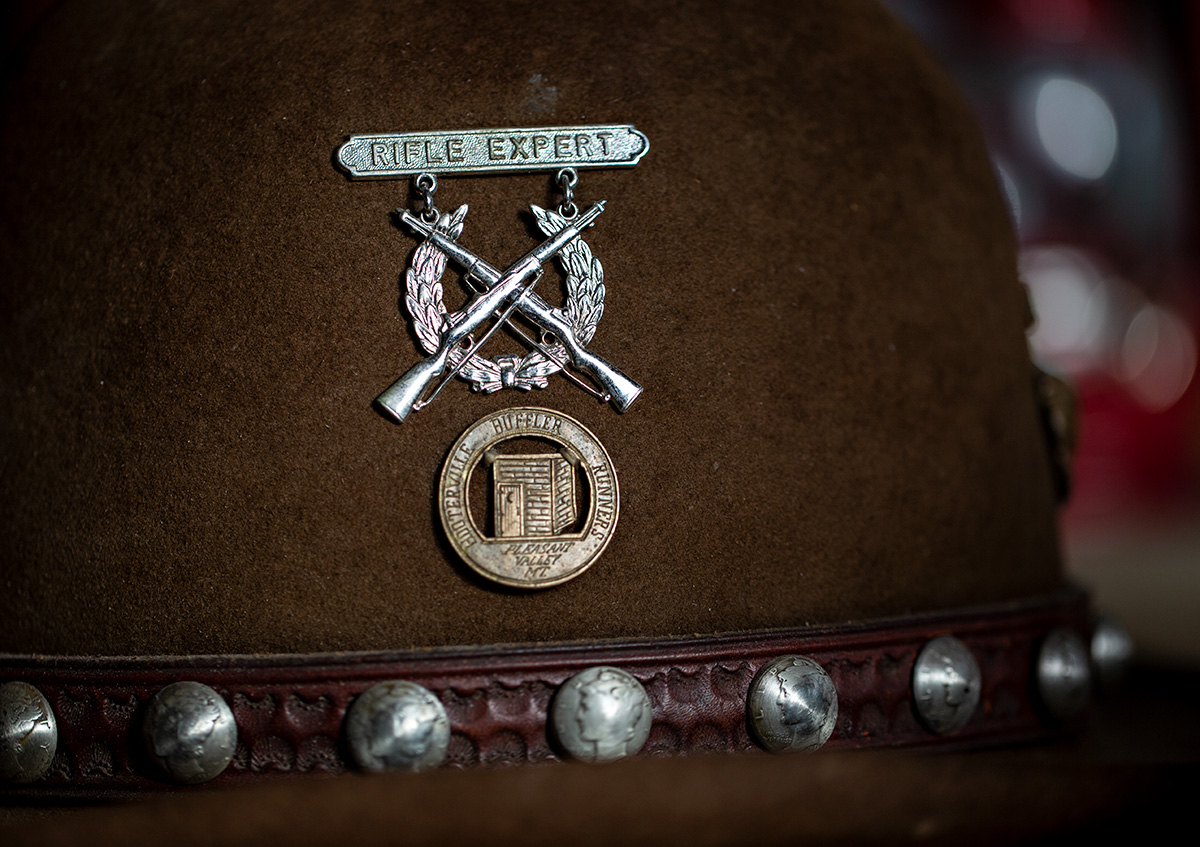
Gordner bought a six-pack of Buckhorn Beer for 99 cents and a piece of apple pie for $1. Soon after, he found a job fixing appliances and planned to go back to the East Coast once he earned enough money to travel.
But he stayed.
After a few years of manual labor jobs, Gordner used his military cryptologic technician background and left Montana to build ultrasound machines in Phoenix and Seattle.
“The whole time I was gone I always thought, ‘I wish I was back in Montana,’” he said. “I came to the conclusion that living in those places, you could make money, but it wasn’t the life that I wanted. I thought, ‘I’m coming back and I’ll do whatever I have to do.’”
Gordner initially remained in the electronics field in Montana, installing satellite dishes and working for Semitool, but then refocused his trajectory toward the mountain-man dream. He wanted a genuine mountain-man saddle, which were typically built in the 1840s. Since few people still made the traditional saddles, he realized he’d have to make his own.
He worked for Hook’s Saddlery in Creston for 15 years and returned to electronics once again at Semitool after the saddle business went under, until he got a job offer at Serengeti Rifles, now Kilimanjaro Rifles, building guns, a hobby he’d had since his time in the Marines.
Gordner wasn’t looking for a gunsmith job, but after a woman who worked for the company saw his unique inventory, they quickly recruited him.
“They said, ‘You build these? Who are you?’ I said, ‘What do you mean? I’m just a guy who likes to build guns,’” Gordner said.
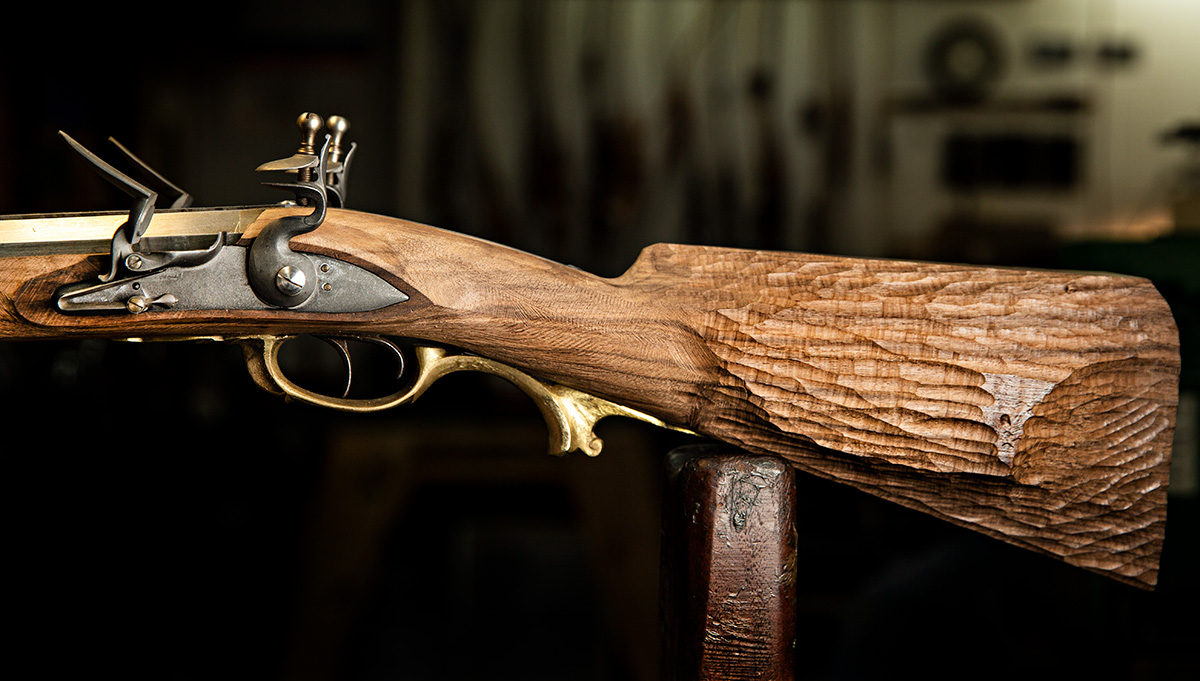
Gordner built his first gun as a Marine in 1975 in his military barracks. His style evolved over the years with the help of mentors, as a hobby and then professionally, and now as a self-employed gunsmith building custom guns from scratch out of wood and steel.
In 2013, Will Parker, who now owns Freddie Merc’s Gun Wercs, worked with Gordner at Montana Rifle Company and calls him a “master craftsman.” He’s handled $30,000 rifles that Gordner has built and calls them drop dead gorgeous.
“Gene’s old school,” Parker said. “He’s an actual gunsmith. A lot of gunsmiths, all they do is replace parts, but a true gunsmith is supposed to be able to make parts if they can’t be found and machine them. Gene can do that.”
Parker describes Gordner’s work as fast yet meticulous. He once watched a customer cry after Gordner fixed a stock rifle that everyone else said was ruined.
“It was absolutely gorgeous,” Parker said. “He fixed a ruined stock because he’s that kind of craftsman. I would have thrown it in the trash because I didn’t see a way to save it.”
Parker says most custom gunsmiths typically order stock that’s made with a specific grade of wood and then simply do the finishing touches. He’s seen very few gunsmiths make them completely from scratch like Gordner does.
Like with the mountain-man saddle, history drives Gordner’s inspiration.
“I just like the whole world of history that’s behind guns,” he said. “I make old relics from history, and a lot of times I make them look like they are 200 or 300 years old, like they’ve been through a war and survived it.”
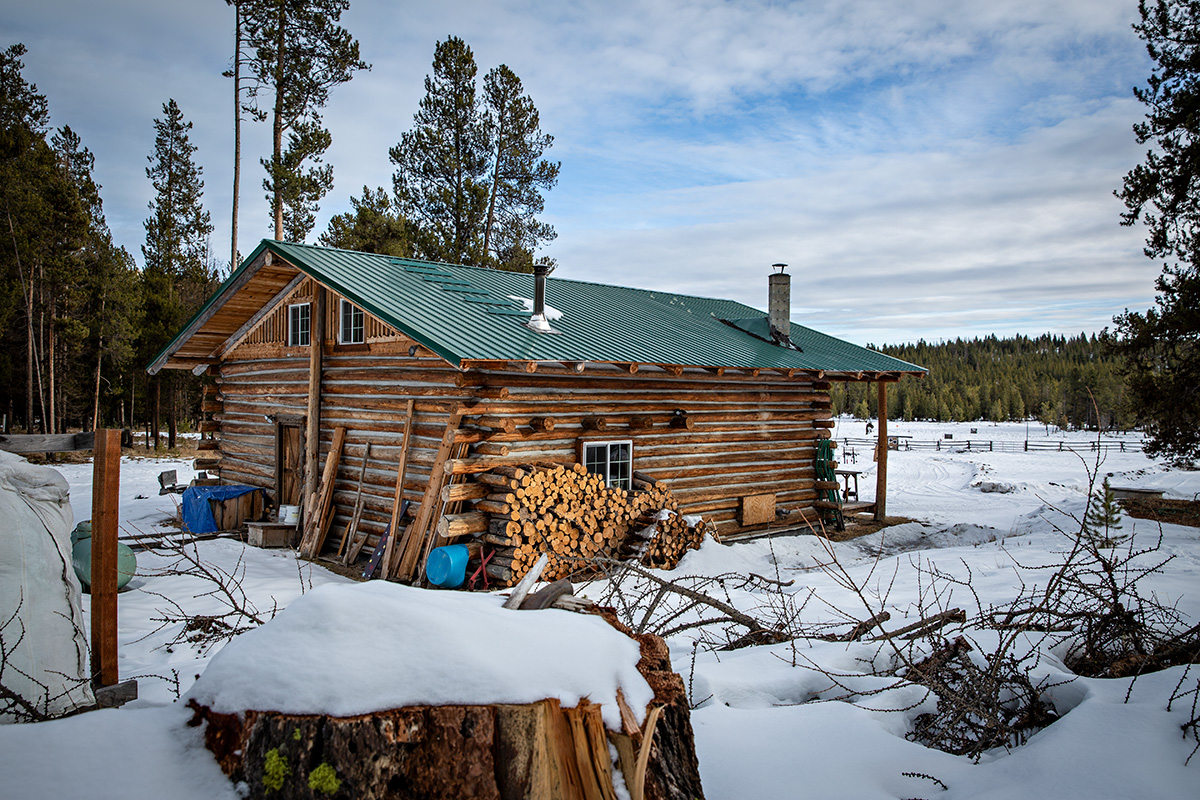
Now on his own, Gordner builds modern bolt-action rifles for most of his customers, but his personal guns include flintlocks and buffalo guns. They’re similar to Remington Rolling Block, Springfield Trapdoor and Sharps rifles, which were popular with 1880s buffalo hunters.
“I think history is what drives all this,” Gordner said. “The frontiersmen like Daniel Boone and Davy Crockett and Jeremiah Johnson and Jedediah Smith, they came out to explore … It was a fascinating time in history.”
Gordner dreams about the lives of mountain men of yore, and while he can’t go back in time, he has compensated by attending an annual rendezvous for the past several decades. Every year, Gordner and his “old cronies” head out on a primitive trip to play mountain man. Participants can’t have anything that didn’t exist in 1840, meaning no filtered cigarettes or anything from a can.
Many of Gordner’s old cronies have passed away, but he still goes to the rendezvous every year. He’s been involved with the Flathead Free Trappers for decades, but he says many of its members are getting old and the club’s participation has dropped from 200 members to around 50 nowadays. But Gordner still plays the role of frontiersman whenever he has the opportunity, and he often brings his guitar.
As with his saddles and guns, Gordner maintains the mountain-man theme through music by playing cowboy songs from the 1880s. While he does modern tunes, too, he’s learned an assortment of old songs over the years like Big Rock Candy Mountain.
“I love lots of music and I love those old songs,” he said. “It’s a history thing — a lot of those songs are from the 1880s.”
He even had a gig singing and playing for Old West Adventures, a horse outfitter in Glacier National Park. He also played for Lonesome Dove Guest Ranch and still plays for Flathead Lake Lodge.
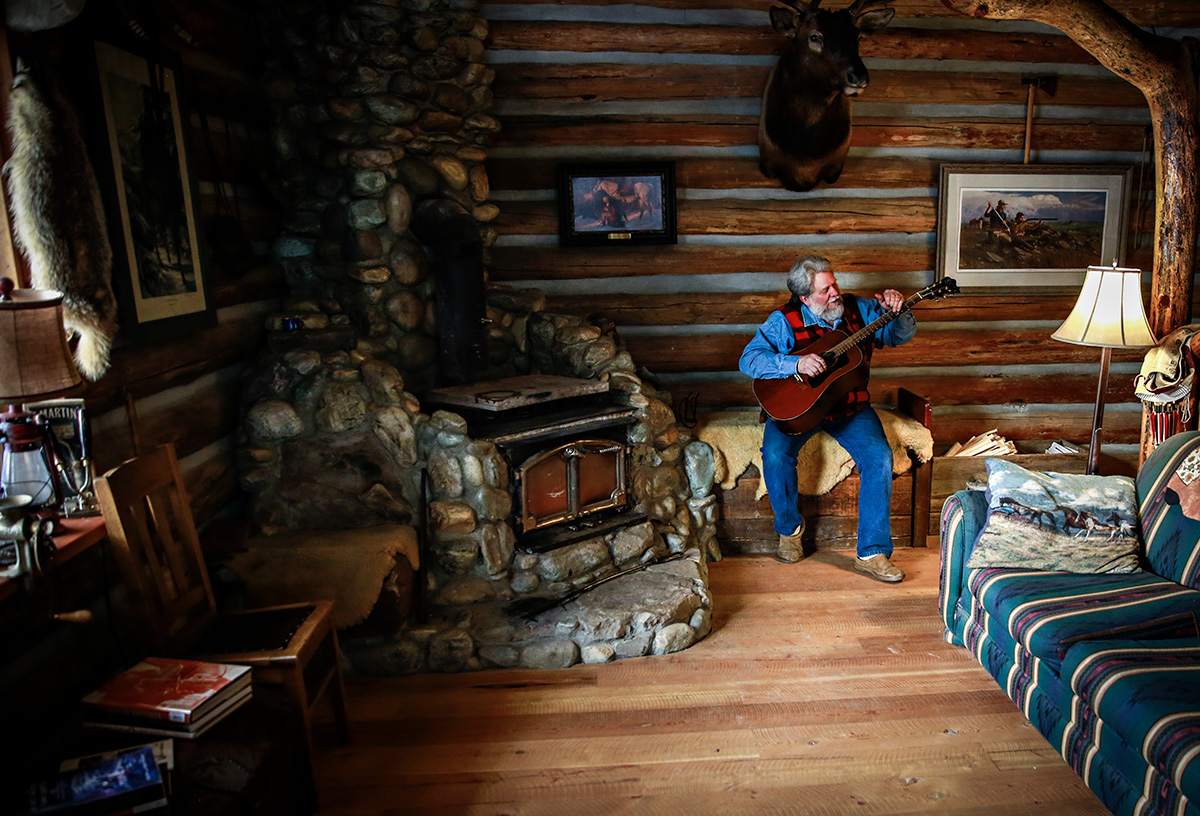
Gordner still embodies the frontier dream these days, living in an off-the-grid cabin that he built west of Kalispell.
“This is my piece of heaven,” he said. “I love it here. This is my dream. Standing right here in the middle of nowhere, I can sit here and think about all my great adventures I’ve had to get out here, and I’m still thinking about more.”
On his 40-acre property, Gordner sometimes hosts shooting matches with themes like pre-1950 military rifles or sporting rifles. He says it’s “mostly a bunch of old gray farts,” but he’s trying to show the younger generation the art of traditional guns.
“The young generation is into those plastic stock guns,” he said. “There’s no flavor in them.”
He says gunmakers used to have artistic flair but sees the modern gun as a mere piece of plastic, and he finds no enjoyment working on a chunk of fiberglass.
In addition to hosting shooting matches, Gordner also hosts Christmas for his family every year and he’s grateful he can show his grandchildren a simpler way of life.
After careers in electronics and building saddles and guns, he finds his recent job the most rewarding.
“Being grandpa is the best job in the world,” Gordner said. “It’s the best job I ever I had. I’m trying to make sure all of them think Grandpa Gene’s cabin is the place to come so when I’m old and dead, somebody will get it and they can still go there. I think that will be a cool thing.”